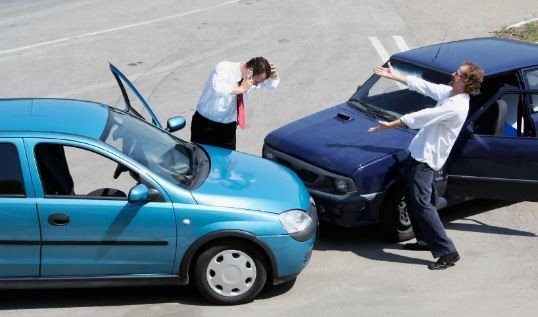Is There a Safe Way to Use Your Phone and Drive?
Everyone’s heard that distracted driving is dangerous, and there’s a mountain of studies backing that up. Almost 400,000 Americans are killed or injured annually in distracted driving-related crashes. But people all over the world still do it anyway.

In the US, drivers use phones in 88% of car trips. At least a quarter of teenagers have texted while driving, a quarter of adults say texting or emailing doesn’t make their driving worse, and lots more think other distractions, like talking on the phone, aren’t harmful. Which just… doesn’t seem to add up. We’re overconfident, mostly because our brains don’t show us how much distractions really affect our driving, which gets us into life-or-death situations. Ultimately, the problem with distracted driving is multitasking: paying attention to multiple thoughts or tasks at once. Decades of research have shown that it doesn’t matter whether you think you’re great or terrible at multitasking, because humans are straight-up awful at it. You make more mistakes when you’re switching focus between multiple tasks, because switching takes time anywhere from a fraction of a second to half a minute when you’re driving while doing something else. And that transition time leads to missed details and mistakes. Plus, you have a sort of blindness to one task while you’re focused on another. So you might think you’re batting a thousand, because you don’t know how much you’re missing. And that’s one reason it can be tough to convince people that their distracted driving is dangerous. Research in driving simulators shows that drivers talking on their cell phones miss as much as half of what happens around them stop signs, exit ramps, other cars, pedestrians, you name it. And when you ask them afterwards, they just say those things weren’t there. Now, some of you are probably thinking that maybe this is true for other people, but you really are a good multitasker. But here’s the thing: more confident multitaskers do worse on multitasking tests, not better. And same goes for multitasking tests that involve driving: the more comfortable a driver is with multitasking, the worse they tend to be at it. Confident or not, distracted drivers are significantly more likely to be injured or killed, or hurt someone else. So it’s a serious issue, and one that every single one of us can prevent. Not all distractions are created equal, though. Adult drivers generally don’t get in more accidents if they’re eating or drinking, as long as it’s non-alcoholic. But passengers are an interesting middle ground. Younger drivers get in more accidents when they have passengers in the car, especially people their own age. But that increased risk goes down as drivers get older. Which is actually true for most distractions. Surveys show that younger drivers aren’t as good at identifying and responding to hazards like merging roads or swerving cars, so they choose worse times to be distracted. They’re also about 5-10% more likely to think certain distracting behaviors like talking on the phone don’t affect their driving. But talking on the phone really does, no matter a driver’s age. Like in driving simulations, adults are just as impaired as drunk drivers are and crash more when they’re talking on the phone. And by tracking drivers’ eye movements in real life and in simulations, researchers have found that drivers on the phone or doing comparable tasks only look at a fraction of the road. There’s no measurable difference between holding the phone and using a hands-free device or voice recognition software like Siri. Even if laws and our unaware brains say otherwise.

The danger of a phone call isn’t that your hand is off the wheel. It’s that your attention is off the road. That’s why the device doesn’t matter. But talking to a passenger in the car is a little different, because they actually can see what’s going on around you, and, like, pause the conversation while you find your exit or merge into that lane. Finally, researchers gathered data from cars with cameras and sensors to study about a thousand serious crashes, meaning there was property damage or injuries. And they found that texting, dialing, and reaching for the phone are about the most dangerous things that many people do while driving. Things like eating and listening to music, especially for experienced drivers, aren’t tasks that demand focus from your brain. And even if your bite is a little off or you miss lyric here or there, who cares? More dangerous distractions require more of your focused attention, because getting the details of your text conversation right often means getting details of the road wrong. When hundreds of studies say phones aren’t safe, we should listen. Even if it means having some good ol’ fashioned silence after your podcast ends. And not only are phones not safe for drivers, there’s a chance your phone might not be safe when you’re online as well.

To the question in your title, my Magic 8-Ball says:
Hi! I'm a bot, and this answer was posted automatically. Check this post out for more information.